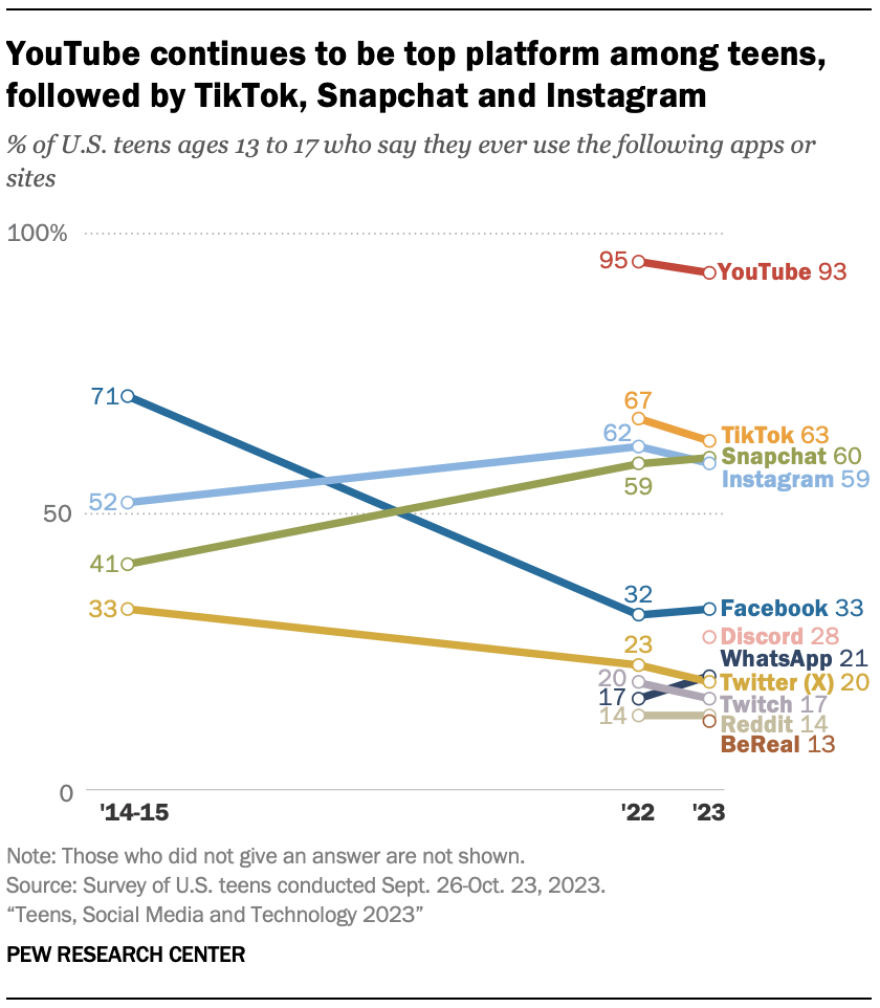More teenagers are using social media every year, despite headlines and studies showing digital media use is having a negative impact on their mental health.
A recent Pew Research Center survey showed a strong majority of teenagers describe their social media usage as “almost constant.” The survey noted that the use of social media can help teenagers develop self awareness about their limitations, rather than relying on things like curfews or other limits set by parents.
YouTube is the dominant top platform that teenagers use, at 93%. This is followed by TikTok, Snapchat and Instagram.

The survey also showed site and app usage in teenagers hasn't changed much between 2022 and 2023. The amount of teenagers using these platforms remained stable between the two years, with the percentage of teens using apps like TikTok remaining the same.
“On the playground of the digital world, there's going to be fun and excitement and connection and feeling accepted," said Linda Charmaraman, a senior research scientist at the Wellesley Center for Women. "But then there's also going to be, 'oh, gosh, my life doesn't look as good as them. I have FOMO, people are being mean and spreading rumors.'"
Teenagers may go to their close contacts for help processing what they see online, like cousins, aunts and uncles or other relationships that can help teenagers understand how to protect themselves in a digital space.
There are pros and cons to using social media not just in teenagers, but in all ages. Different groups of people experience it in different ways, Charmaraman said, depending on maturity levels and friend groups.
Charmaraman also said that while there are a lot of studies about social media and mental health, the linkages are correlational studies, associating one topic with another and not digging as deep as is needed. These studies are also focused on older youth, typically in college students and not teenagers.
Teenagers and "tweens" have different cognitive capacities and developmental tasks they are working on, making the affect of social media on their lives more impactful.




